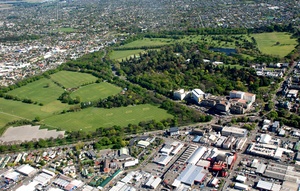Folkon
Folkon | |
|---|---|
City | |
 A view of Folkon | |
| County | Folkonia |
| Country | Tumland |
| Settled | 4th Century A.D. |
| Independized | 1808 A.D. |
| Founded by | TBD |
| Named for | Most productive city in Tumland |
| Population (2018) | |
| • Total | TBD |
| Demonym(s) | Folkonian |
| Time zone | TMB-2 (AMT) |
| Area code(s) | 001 |
Folkon is a city located in the county of Folkonia within the nation of Tumland. It is the third-largest city by population in Tumland and has a significant historical background.
Contents
History
In 1714, Folkon embarked on an expansionist campaign, establishing an empire that encompassed neighboring city-states, including modern-day Tumland, parts of Sconia to the northwest, sections of Pavulturilor to the east, and segments of the Fieri Islands located to the east of Tumland. The empire's collapse due to internal strife led Folkon to integrate into the broader Tumland. Occasional unrest persists as certain factions advocate for independence.
Geography
Folkon is situated in the heart of Folkonia, characterized by its flat terrain and proximity to the river. While lacking in distinct geographic features such as mountains or natural wonders, Folkon's strategic location along trade routes has historically contributed to its economic significance.
Demographics
Folkon is home to a diverse population, comprising primarily of Tumanituns alongside significant ethnic minority groups. This diversity reflects the broader demographic makeup of Tumland and contributes to the city's cultural fabric.
Economy
Folkon's economy relies heavily on its industrial sector, with numerous factories scattered throughout the city. These manufacturing facilities play a vital role in supplying goods both domestically and internationally. However, concerns regarding environmental regulations persist, as the city's industrial activity raises questions about pollution and sustainability.
Culture
Folkon's cultural landscape is shaped by its historical landmarks and annual festivals. Notable landmarks include the Folkonian Palace, which served as the seat of power during the city's imperial era, and a Folkon Market Square, a bustling hub of commerce and social activity. The city's festivals celebrate its diverse heritage and traditions, fostering a sense of community among its residents.
